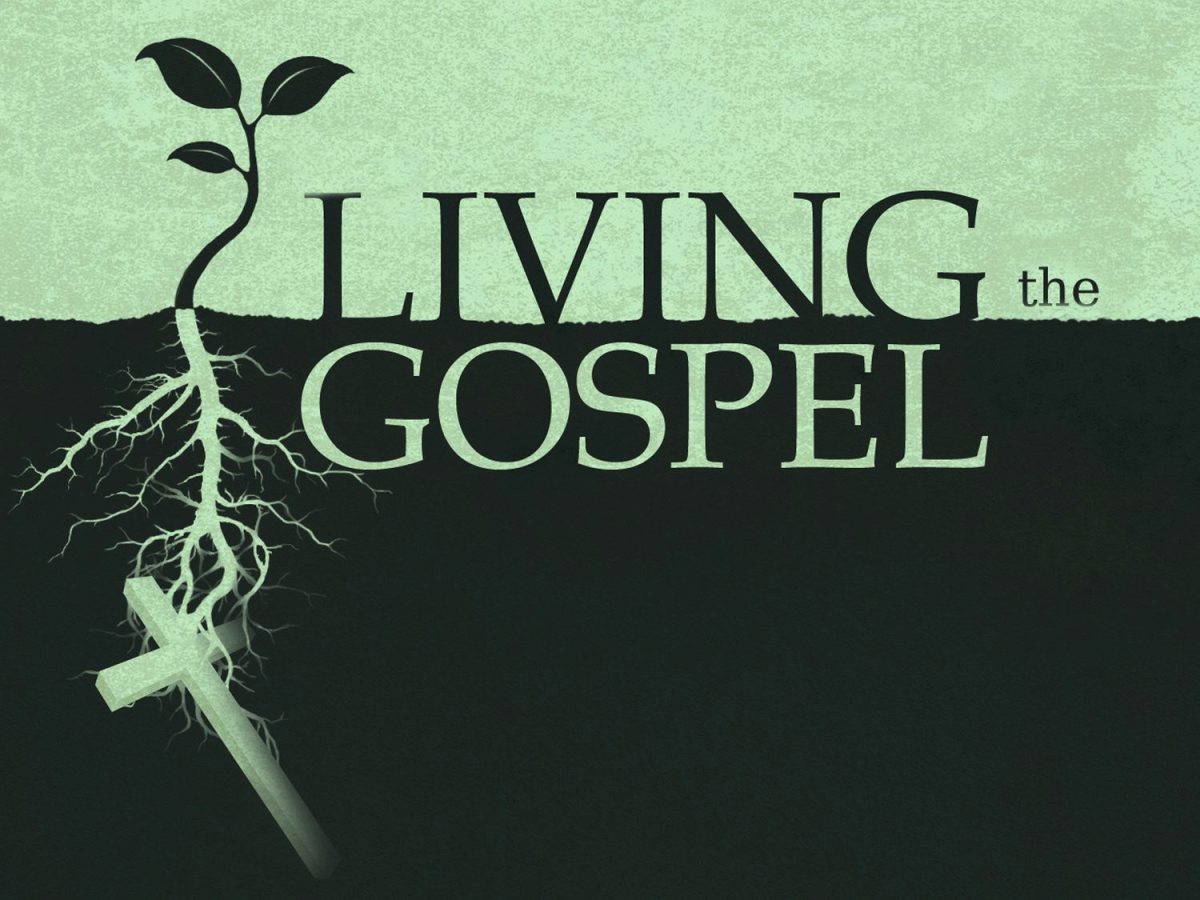
Continuing on from Section 7 we now look more closely at how needs can appear to be motivating us in ways that seem to have integrity but in fact are inconsistent with the values of the Gospel.

Needs that may be Consistent (or Neutral) with Gospel Living and Choices:
Achievement: This is the need to succeed or achieve, to accomplish, master and complete something difficult; to develop a skill, to overcome obstacles and attain a high standard, to increase self-esteem by successful exercise of talent.
As a Gospel value we recognise it in; “Striving to win the race” Hebrews 12:2. “I set difficult goals for myself which I attempt to reach!”
Acquirement: The need to gain possessions for oneself. To gain what I need or want for self.
As a Gospel value we recognise it in; 2 Corinthians 12:14 “Now I am ready to visit you for the third time, and I will not be a burden to you, because what I want is not your possessions but you.” To acquire grace and the works of grace. To fill one’s life with the things of God.
Affiliation: The need to draw near a person or organisation, to cooperate with another or a friend in a mutually respectful relationship, in order to develop a sense of identification and belonging.
As a Gospel value we recognise it in Agape, collaboration, community.
Autonomy: To be independent, to be able to lead myself, to be able to think and act on one’s own, to function without support when necessary.
As a Gospel value we recognise it in the interiorization of my faith-life. “I can be independent and act upon my own decisions which I believe in.”
Change: To be open to change, new ways and ideas, to avoid routine and sameness.
As a Gospel value we recognise this in our willingness and desire for conversion to Christ.
Counteraction: To overcome difficult situations, to go beyond setbacks, to strive persistently to overcome difficult, frustrating or humiliating experiences.
As a Gospel value; spiritual revolution, conversion, passive resistance and opposition of what is immoral, or against freedom or justice, liberation from unhealthy habits, in the work of self-transcendence. “I have the determination to go beyond my failures and frustrations.”
Domination: To control one’s environment, to influence or direct the behaviour of others by suggestion, seduction, persuasion, command or enticement, to dissuade, restrain or prohibit.
As a Gospel value; service-leadership, direction. To influence others in the ways of living the Christian life.
Excitement: To be easily excited and stimulated.
As a Gospel value we recognise it in Gospel Joy or in our enthusiasm for witnessing to the life of Jesus, “May the Sacred Heart of Jesus be everywhere loved. Forever!“
Knowledge: To seek out knowledge, gain information, to know.
As a Gospel value we recognise it in our desire to know God and the ways in which God desires us to live.
Nurturance: To give sympathy, to feed, support, help, console, comfort, nurse, heal and protect anyone who is helpless, weak, disabled, tired, inexperienced, infirm, defeated, humiliated, lonely, dejected, sick, confused. To desire to reach out to others.
As a Gospel value we recognise it in charity, pastoral care, for love of other. “I am easily moved by the misfortunes of other people.”
Organization: To put things in order, to achieve cleanliness, arrangement, organization, balance, neatness, tidiness, and precision.
As a Gospel value we recognise it in; 1 Corinthians 14:40 “everything should be done in a fitting and orderly way.“
Playfulness: To have fun and enjoy life but for no hidden purpose
As a Gospel value we recognise it in; Matthew 18:3 “Truly I tell you, unless you change and become like little children, you will never enter the kingdom of heaven.”
Submission: To admire, support and follow someone, to be actively conforming.
As a Gospel value we recognise it in; Philippians 2 “In your minds you must be the same as Christ Jesus our Lord.”
All these consistent needs, however, can be used defensively, that is, to cover up an unconscious underlying need that is less acceptable to the person, i.e., inferiority, aggression, fear of closeness. Here are some examples.

Some examples of Needs that may be used Defensively:
Defensive Achievement: Achieving in order to stave off a less desirable consequence.
Defensive Affiliation: The need to be the congenial peacemaker, and in doing so hiding needs of aggression.
Defensive Autonomy: Withdrawal into self-reliance in order to avoid the need for affiliation.
Defensive Nurturance: To nurture one’s self rather than face loneliness, hurt and pain.
Defensive Organization: To control in order to avoid feelings of impotence or unworthiness.
Defensive Playfulness: To make fun in order to avoid deeper concerns. For example the childish giggle of an adult during a grave circumstance.
Defensive Submission: To give way to the dominance of others to avoid one’s own need for dominance or autonomy.
If I speak in the tongues of men or of angels, but do not have love, I am only a resounding gong or a clanging cymbal. If I have the gift of prophecy and can fathom all mysteries and all knowledge, and if I have a faith that can move mountains, but do not have love, I am nothing. If I give all I possess to the poor and give over my body to hardship that I may boast, but do not have love, I gain nothing.
1 Corinthians 13
Each of us is born, lives, and dies with all these needs, although the relative strength of the needs differs from person to person. The difficulty is not in having the need, but with developing such high levels of the need that it results in inappropriate behaviour and attitudinal expression.
Needs which Inappropriately Expressed will be Inconsistent with Gospel Living:

Abasement: (Low Self-esteem). A tendency to blame self, put oneself down. Lack of self-confidence, inferiority, self-depreciation; may be disguised under a cloak of narcissism. To submit passively to external force; to accept blame; surrender; admit inferiority or error when not at fault. “I am always creating problems, and upsetting situation, I’m always to blame.”
Succorance: (Affective Dependency). To be cared for by a sympathetic other, to be nursed, nurtured, supported, sustained, surrounded, protected in a receiving but not giving relationship, loved, advised (a one-way relationship). To be guided, indulged, forgiven, consoled. To remain close to a devoted protector. To always have a supporter. “I feel lonely and that I cannot cope without your help and protection! I cannot live without you.”
Aggression: To overcome difficulties with aggressive behaviour. Outwardly displayed hostility, verbal attacks, criticisms or depreciations of others; seeking revenge, ‘payback’, excessive assertion of domination. “I treat a domineering person as badly as they treat me.”
Passive Aggression: Stubbornness, non-cooperation, resentment that shows itself indirectly.
Defensiveness: To refuse to admit any blame, criticism, wrongdoing, misdeeds; to conceal or justify failures or humiliations. “I usually find plenty of reasons and excuses to justify and explain my failures.”
Passive Defensiveness: To avoid humiliations, to quit embarrassing situations, or to avoid conditions which may lead to belittlement; to refrain from action because of fear of failure. “What will they think of me if I act, better to do nothing at all.”
Harm Avoidance: Excessive preoccupation with pain, physical injury, illness or death. To avoid situations or people which may cause pain, physical injury, illness, thoughts of death, or discomfort; over-protective of oneself. “That situation is going to demand too much from me.”
Exhibitionism: To be noticed, heard and to make a good impression. “I need to be noticed so that people will see what a good Christian I am, so I exhibit my life daily on social media, seeking to attract attention.”
Sexual Gratification: To form and foster an erotic or genital relationship; direct seeking of genital pleasure and have inappropriate sexual intercourse. This is a secondary need, behind which we may find aggression, abasement, or dominance, etc. “I spend a great deal of time thinking about sexual matters and activities.”
Turn my heart toward your statutes and not toward selfish gain.
Psalm 119:36
All these needs are present in every human person to some amount. But when the need becomes ‘dominant’ and ‘driving,’ through deprivation or over-supply then it works against Christian living.
For Your Reflection
How have you seen these needs visible in your behaviour and attitudes?
Basic Needs operate at the Conscious and Unconscious Levels
(Fr. Alatini Kolofo’ou SM, Fiji.)

Conscious Level
When the ‘need’ is conscious and the person knows what is going on, then the person has the capacity to make a definite and real renunciation of the need. To have the ability to say ‘no’ to the need operating within them.
Unconscious Level
The above needs are considered ‘Universal’ and therefore part of been human. Each need is present in every person to some degree. Yet, individuals may differ greatly in the ‘strength’ of each of them. And individuals may differ greatly in the degree to which a particular need influences their way of living and acting. One can either be ‘in control’ of one’s Needs or they can be ‘in control’ of the person. The two main levels at which such needs can exist are at the Conscious Level or the Unconscious Level.
However, there remains a need to surface the ‘unconscious needs’ to the conscious level so that I am in control of my life. To be able to do this, I need to:
- be a person of deep reflection.
- be a person who is honest with myself.
- be a person who can accept resistance within myself.
- be a person who is comfortable with the truth about myself.
How hungry are our unconscious needs? We could easily use the ‘people of God’ to satisfy our hungry needs. When needs are deeply unconscious, it will not be clear to the person what is going on and the needs will fight against been made conscious. Unconscious needs usually lead to feelings of frustration rather than clear choices. It is important to know that unconscious does not mean they are not active within us. Unconscious needs can have a big influence in a person’s life even though they are not aware of their existence. If hidden unconscious needs are active but remain concealed from the person, there will still be a desire for the need to be satisfied. But if this desire is not fulfilled, there will be feelings of dissatisfaction and frustration within the person. If unconscious needs are not met in Christian life there may result a negative reaction within the person and anger and frustration may be expressed.
If the need to ‘be loved’ and to ‘be accepted’ are not met in the family in early childhood and the person comes to the Christian life hungry for love and acceptance, then she/he will be like a fish on land. A person may appear to give generously of themselves, but what motivates them to give is their unconscious need to receive affirmation, approval or acceptance. If you do not affirm or give me approval, I will withdraw and stop giving.
For Your Reflection
Have I come to the Christian life for the fulfillment of my unconscious needs, or the fulfillment of God’s Love in the world?
Inconsistency
Inconsistency in a person’s life points to a contradiction within the person. On one hand, the person is committed to the basic values of Christian life, but on the other hand he or she is pulled in other directions by unconscious needs. The person may be drawn in opposing directions; ‘I do not do what I want to do but find myself doing what I do not want to do!’ says St. Paul. The person is said to be consistent when the value spoken is supported by a need which is in harmony with that value.
We bring our needs, both conscious and unconscious, with us to wherever we go. The individual who has unconscious needs not in harmony with the values of his/her vocation, still brings these needs into the Christian life. The person does not consciously recognize that they are there but will still desire that these needs be fulfilled.
Two extreme possibilities may happen:
- The fulfillment of the unconscious need is still there. A person who is seen as generously giving, maybe covering the need to receive approval or affirmation in return or
- the individual may seek Christian life not so much to express his needs but to remove them. Seeking to get rid of his or her conflicts in the area of aggression, sexuality or intimacy by choosing Christ. Seeking ‘religious perfection’ to replace internal and even unconscious conflicts.
Living in the Tension
We live somewhere in the tension between our values and our needs. Sometimes we know this because we experience it in our weaknesses, sinfulness, confusions, etc. A life of Christian maturity requires us to become conscious of our needs and to meet them in healthy ways that are in harmony with the values we profess to follow. Our walk and our talk need to say the same thing.

For the Consecrated Religious learning how to live creatively in the tension between our needs and our values is very important. This tension is where we have to live our lives. It is where we will experience all the issues of life; spirituality, sexuality, relationships, family and community, fun and play, emotions, work and ministry, study, disease, compulsion, etc.
When I was a child, I spoke like a child, I thought like a child, I reasoned like a child; when I became an adult, I put an end to childish ways. For now we see in a mirror, dimly, but then we will see face to face. Now I know only in part; then I will know fully, even as I have been fully known.
1 Cor 13:11-12
Next week we will take a look into three special dimensions that arise in this space of experiential tension. Three dialectics that potentially are influencing our choices and actions. Till then “Grow strong and prosper in the mission!”
Chris Chaplin, msc
